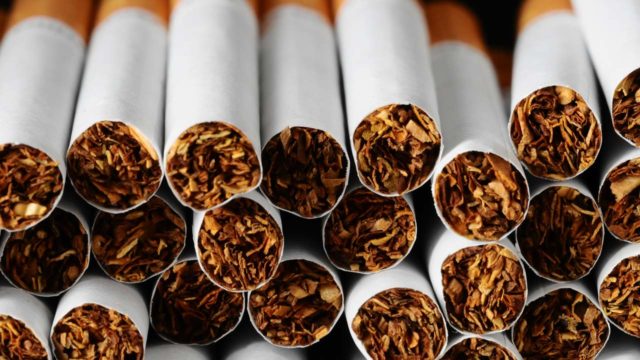Nigeria’s government says it will increase excise tax on tobacco products from 30 per cent ad-valorem to 50 per cent as part of measures to control tobacco smoking in the country.
Dr Mangai Malau, Head, Tobacco Control Unit, Noncommunicable Disease Division, Federal Ministry of Health disclosed this on Tuesday, at the National Tobacco Control Budget Advocates Meeting in Abuja.
Malau presented a paper titled “Overview of Tobacco Control Funding/Budgeting in Nigeria: Why Tobacco Control Budgeting and Funding?
He said that presently, the Federal Government imposed 30 per cent tax on tobacco products but its target was to increase to 50 per cent in order to meet the World Health organization (WHO) standard.
According to him, funding for tobacco control must come majorly from taxation and there is also need for relevant stakeholders to apply tax measures rightly if they are to address the issues of tobacco control in the country.
“In effectively controlling tobacco and tobacco products in Nigeria, funding is a critical component. The WHO Framework Convention on Tobacco Control (WHO FCTC) recognises this and clearly stipulates in Article 26.
“It states that parties shall provide financial support in respect of its national activities intended to achieve the objective of the Convention, in accordance with its national plans, priorities and programmes.
“It is also important to state that funding is a major provision of the National Tobacco Control (NTC) Act.
“Section eight of the Act, provides for the Tobacco Control Fund, which shall be used to fund tobacco control activities programmes and projects,” Malau said.
According to him, this meeting is therefore important as it will seek for better funding for tobacco control, in order for Nigeria to meet the objectives of the WHO FCTC and the NTC Act.
He said, “Tobacco use and exposure to secondhand smoke is a leading cause of mortality, morbidity, disability and impoverishment in the world.
“It is the greatest risk factor for non-communicable diseases like hypertension, stroke, cancers, diabetes and chronic obstructive pulmonary diseases.
According to him, WHO said: “tobacco causes more than eight million deaths annually around the world, with more than seven million of those deaths as a result of direct tobacco use.
“And about 1.2 million resulting from non-smokers being exposed to second-hand smoke.
He said that tobacco smoke contained over 7,000 chemicals, of which hundreds were toxic and about 70 are known to cause cancer.
“Also, there is no safe level of exposure to tobacco smoke and even a brief exposure can be harmful to one’s health.
“Concerned about the threat from tobacco, Nigeria signed and ratified the WHO FCTC, in 2004 and 2005 respectively. In 2015, the National Tobacco Control (NTC) Act was enacted and its Regulations was passed in 2019,” he said.
In his remarks, the Chairman of Nigeria Tobacco Control Alliance (NTCA), Mr Akinbode Oluwafemi, stressed the need for Civil Society Organizations (CSOs) to advocate for more budgetary allocation for tobacco control in the country.
Oluwafemi urged CSOs to begin the budgetary advocacy in July when the government’s ministries, departments and agencies would commence the 2024 budgets presentation and defence.
According to him, it is also important that CSOs form alliance while carrying out the advocacy.








Leave a comment